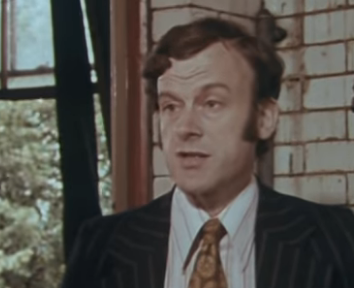John Mills… ‘he's built into our foundations’
Councillors learn of former finance chief's passing at Town Hall meeting
Saturday, 12th April 2025 — By Richard Osley

NO matter your political persuasion, it is hard to argue against the council leader’s description of John Mills as a figure built into the foundations of Camden.
He had served for more than 30 years as a Labour councillor at the Town Hall, leaving a legacy which has benefited so many families who can thank him for the roof now over their heads.
As housing chairman, he ordered officers to buy up hundreds if not thousands of street properties for use as council housing.
Not only have those flats and houses escalated astronomically in value, more importantly they provided accommodation for some of those most in need over a generation.
His death at the weekend, aged 86, was marked by the current council leader Richard Olszewski at Monday’s full council meeting.
He described Mr Mills as a “legendary figure”, adding: “He was really driving innovative and forceful action to improve social housing across the borough – with huge beneficial effects. It shaped very much what Camden is today.”

John Mills at his company’s old HQ in Kentrish Town
Councillors had only just heard the news of his passing and will pay wider tributes at their next meeting.
Given Camden is currently celebrating its 60th birthday as a borough, Mr Mills served on the council benches for more than half of its history.
While often seen as the man who might have been king, Mr Mills never went on to lead at the Town Hall – but his influence was always there.
In his final years as a councillor, he was the finance chief in the cabinet.
It was a time when projects like the building of the Talacre Sports Centre was possible, and the admittedly more controversial redevelopment of the facilities at Swiss Cottage.
Many found it amazing that he had the time to devote to local politics, while running the successful JML retail empire – a company bossing the shopping channels from a base in Regis Road, Kentish Town.
A millionaire, he became one of the Labour Party’s most generous donors. But his often talked about wealth did not come with snobbery or conceit.
The opposite: he would support community projects at a very local level and decades of photographs in the New Journal show him handing out grassroots football trophies or playing steel drums in a tenants’ hall.
His alert attitude saw him learn how to pilot a plane by himself, and he would often explain the adventures he had been on in the skies even as the years rolled by.
A terrifying near-death experience came not in the cockpit and the clouds, but closer to home in 1997 when he was stabbed near his doorstep in Albert Street, Camden Town.
He was left bleeding heavily but made a miraculous recovery. Journalists found he did not duck questions, even when they were tricky.
Certainly, he never dodged a phone call from the New Journal or hid behind press officers.
Political opponents, meanwhile, found him just as approachable and collegiate where appropriate.
Perhaps that’s why it was the Conservative peer Lord Daniel Hannan who first announced his passing on social media early on Monday.
The Tory is famously an arch-Brexiteer and Mr Mills, to the chagrin of many of his Labour friends in Camden, had always supported a divorce from the European Union.
He had never wanted to join in the first place back in the early 1970s and spent years at Labour conference fringe meetings maintaining his position.
This stance, however, was never drenched in the sharp animosity the issue was to evolve into in some quarters.
Lord Hannan said simply: “Everybody liked him.” And those old enough to remember him in the council chamber were nodding at a similar sentiment from Cllr Olszewski on Monday.
“John was a real Camden Labour figure,” he said.
“Very much built into the foundations of Camden.”
In recent times, Mr Mills had lived in Highgate Village and married the mental health campaigner Marjorie Wallace in 2021.
His first wife, Dame Barbara Mills, a former director of public prosecutions, had died 10 years earlier.
The New Journal will be publishing further tributes to John Mills and an obituary next week.
